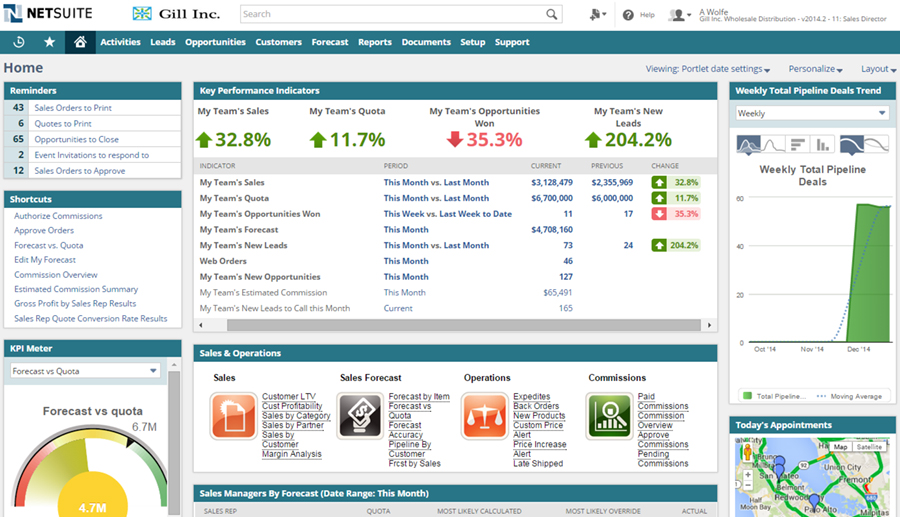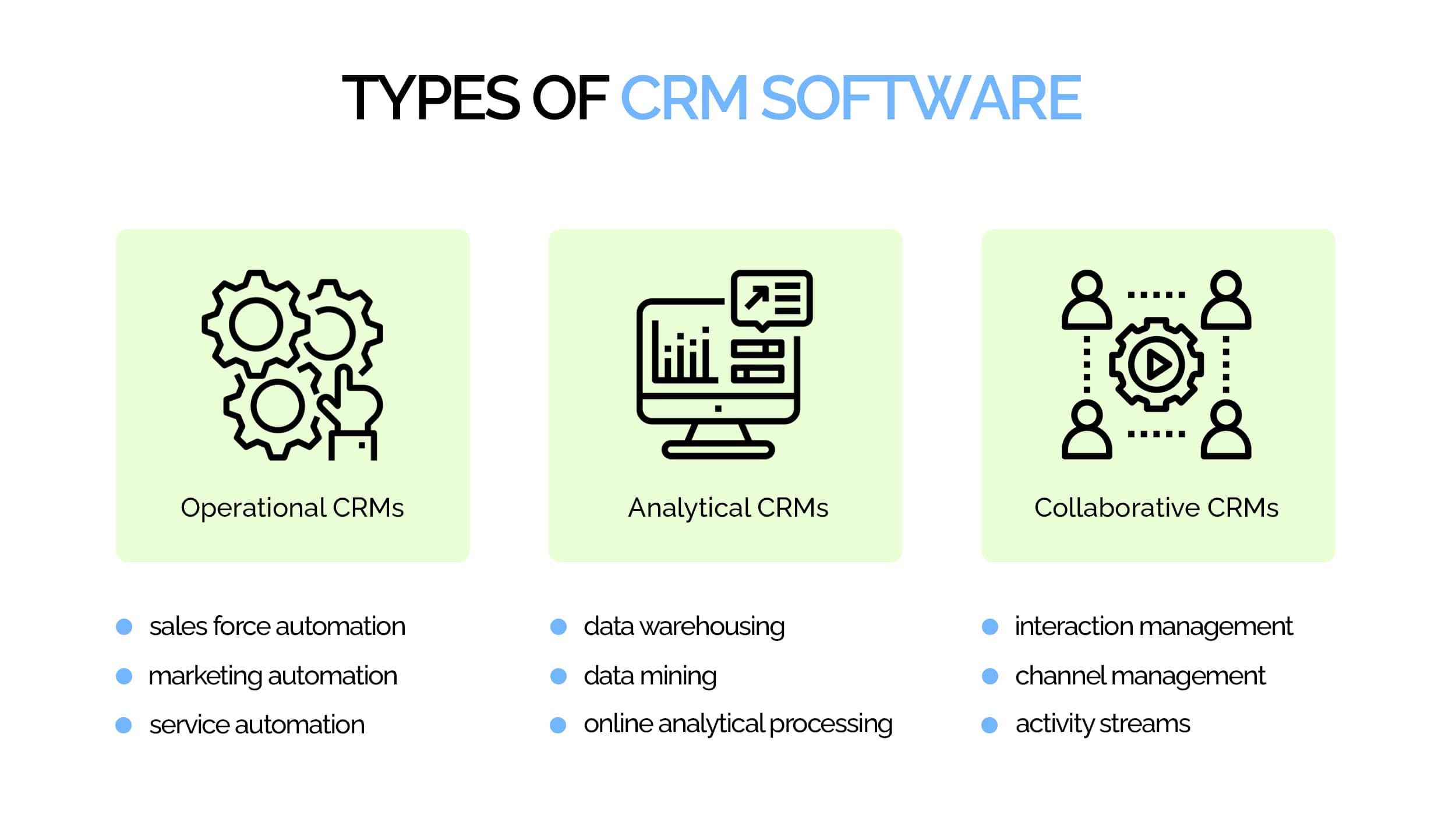Delving into the realm of CRM software systems, we uncover a transformative tool that empowers businesses to forge enduring customer relationships and optimize sales performance. With its comprehensive suite of features, CRM software empowers businesses to centralize customer data, streamline communication, and gain invaluable insights into customer behavior, revolutionizing the way they connect with their clientele.
Harnessing the power of CRM software systems, businesses can cultivate a customer-centric approach, nurturing relationships that drive loyalty and profitability. By providing a comprehensive view of customer interactions, CRM software empowers businesses to tailor personalized experiences, anticipate customer needs, and deliver exceptional service at every touchpoint.
CRM Software System Overview
A CRM (Customer Relationship Management) software system is a tool designed to manage and enhance relationships with customers, streamline processes, and improve overall customer satisfaction. It provides a centralized platform for storing, organizing, and tracking customer data, interactions, and activities.
Common CRM software systems include Salesforce, HubSpot, Zoho CRM, and Microsoft Dynamics CRM. These systems offer a range of features such as contact management, lead generation, sales tracking, customer support, and marketing automation.
Benefits of Using a CRM Software System
Implementing a CRM software system can bring numerous benefits to businesses, including:
- Improved customer relationships:CRM systems provide a comprehensive view of customer interactions, enabling businesses to better understand customer needs and preferences, and build stronger relationships.
- Increased sales productivity:CRM systems automate sales processes, streamline workflows, and provide insights into sales performance, helping businesses close more deals and increase revenue.
- Enhanced customer service:CRM systems centralize customer information and interactions, making it easier for support teams to resolve issues quickly and efficiently, improving customer satisfaction.
- Improved marketing effectiveness:CRM systems integrate with marketing automation tools, allowing businesses to segment customers, target campaigns, and track results, leading to more effective marketing efforts.
- Increased operational efficiency:CRM systems automate tasks, reduce manual data entry, and provide real-time insights, enabling businesses to operate more efficiently and save time.
Key Features of CRM Software Systems

CRM software systems offer a range of core features that enhance customer relationship management. These features provide valuable functionality for businesses, enabling them to manage customer interactions, track sales pipelines, and improve overall customer satisfaction.
Key features of CRM software systems include:
Contact Management
- Store and organize customer contact information, including name, address, phone number, and email.
- Segment customers based on demographics, preferences, and purchase history.
- Track customer interactions across multiple channels, such as phone, email, and social media.
Sales Management
- Manage sales pipelines and track the progress of opportunities.
- Forecast sales and identify potential roadblocks.
- Automate sales processes, such as sending follow-up emails and scheduling appointments.
Marketing Automation
- Create and execute marketing campaigns across multiple channels.
- Track campaign performance and measure ROI.
- Automate marketing tasks, such as email marketing and social media posting.
Customer Service
- Provide a centralized platform for managing customer support requests.
- Track customer issues and resolutions.
- Offer self-service options, such as knowledge bases and FAQs.
Reporting and Analytics, Crm software system
- Generate reports on customer activity, sales performance, and marketing effectiveness.
- Identify trends and patterns in customer behavior.
- Make data-driven decisions to improve customer relationships and business outcomes.
Integration
- Integrate with other business systems, such as ERP, accounting, and marketing automation software.
- Share data across systems to provide a complete view of the customer.
- Automate workflows and improve efficiency.
The table below provides a comparison of different CRM software systems based on their key features:
| Feature | CRM System 1 | CRM System 2 | CRM System 3 |
|---|---|---|---|
| Contact Management | Yes | Yes | Yes |
| Sales Management | Yes | Yes | Yes |
| Marketing Automation | Yes | Yes | No |
| Customer Service | Yes | Yes | Yes |
| Reporting and Analytics | Yes | Yes | Yes |
| Integration | Yes | Yes | Yes |
Benefits of Using CRM Software Systems

CRM software systems offer a wide range of benefits for businesses, including improved customer relationships, increased sales performance, and enhanced operational efficiency.
By centralizing customer data and providing a comprehensive view of customer interactions, CRM software systems enable businesses to better understand their customers’ needs and preferences. This leads to improved customer service, increased customer satisfaction, and ultimately, increased customer loyalty.
Improved Sales Performance
- CRM software systems provide sales teams with real-time access to customer data, enabling them to quickly identify and qualify leads.
- The software also automates many sales tasks, such as lead generation, lead nurturing, and opportunity management, freeing up sales reps to focus on closing deals.
- In addition, CRM software systems provide sales managers with valuable insights into the sales pipeline, enabling them to make better decisions and improve sales performance.
Enhanced Operational Efficiency
- CRM software systems streamline many business processes, such as order processing, invoicing, and customer support.
- This leads to increased efficiency and productivity, as well as reduced costs.
- In addition, CRM software systems provide businesses with a central repository for all customer data, making it easy to access and manage.
Challenges of Implementing CRM Software Systems

Implementing a CRM software system can bring numerous benefits to businesses, but it also comes with its share of challenges. Identifying these challenges and taking steps to mitigate them can increase the likelihood of a successful implementation.
One of the most common challenges is resistance from employees. Change can be difficult, and some employees may be reluctant to adopt a new system. It’s important to communicate the benefits of the CRM system and provide training to help employees understand how it will make their jobs easier.
Common Mistakes to Avoid During Implementation
- Not defining clear goals and objectives.Without clear goals, it’s difficult to measure the success of the implementation.
- Not involving key stakeholders in the planning process.This can lead to resistance and a lack of buy-in from the people who will be using the system.
- Not providing adequate training to users.This can lead to confusion and frustration, which can impact adoption rates.
- Not customizing the system to fit the specific needs of the business.This can make the system difficult to use and may not provide the desired benefits.
- Not integrating the CRM system with other business systems.This can lead to data silos and make it difficult to get a complete view of the customer.
Best Practices for Successful CRM Software System Implementation
- Define clear goals and objectives.What do you want to achieve with the CRM system? How will you measure success?
- Involve key stakeholders in the planning process.Get input from the people who will be using the system to ensure that it meets their needs.
- Provide adequate training to users.Make sure that users understand how to use the system and how it can benefit them.
- Customize the system to fit the specific needs of the business.This will make the system easier to use and more effective.
- Integrate the CRM system with other business systems.This will create a single, unified view of the customer.
- Monitor the system’s performance and make adjustments as needed.This will ensure that the system is meeting the needs of the business and is being used effectively.
Trends and Future of CRM Software Systems
The future of CRM software systems is shaped by emerging technologies such as artificial intelligence (AI) and machine learning (ML). These technologies are transforming the way businesses manage customer relationships, enabling them to gain deeper insights into customer behavior, automate tasks, and deliver personalized experiences.
Artificial Intelligence and Machine Learning in CRM
AI and ML algorithms analyze vast amounts of customer data to identify patterns, predict behavior, and make recommendations. This allows businesses to:
- Automate tasks such as lead scoring, customer segmentation, and personalized marketing campaigns.
- Provide real-time insights into customer needs and preferences.
- Offer personalized recommendations and up-selling opportunities.
Expected Advancements and Innovations
Enhanced Customer Analytics
AI-powered analytics will provide deeper insights into customer behavior, preferences, and lifetime value.
Personalized Customer Experiences
CRM systems will leverage AI to deliver highly personalized experiences across all channels.
Integration with IoT Devices
CRM systems will integrate with IoT devices to collect real-time data on customer interactions and usage patterns.
Conversational AI
Chatbots and virtual assistants will become more sophisticated, providing seamless and personalized customer support.
Predictive Customer Service
AI will enable CRM systems to predict customer issues and proactively resolve them before they become problems.These advancements will revolutionize the way businesses manage customer relationships, enabling them to deliver exceptional customer experiences and drive business growth.
Epilogue

In conclusion, CRM software systems have emerged as indispensable tools for businesses seeking to elevate their customer engagement and drive growth. By embracing the transformative power of CRM software, businesses can unlock a wealth of opportunities to enhance customer satisfaction, optimize sales performance, and gain a competitive edge in today’s dynamic market landscape.
Answers to Common Questions
What are the key benefits of using a CRM software system?
CRM software systems offer a multitude of benefits, including improved customer relationship management, enhanced sales performance, streamlined communication, and increased operational efficiency.
How can CRM software systems help businesses improve customer relationships?
CRM software systems provide a centralized platform for managing customer data, enabling businesses to gain a comprehensive understanding of customer preferences, purchase history, and communication history. This empowers businesses to tailor personalized experiences and deliver exceptional service, fostering stronger customer relationships.
What are some common challenges businesses face when implementing CRM software systems?
Common challenges include data migration, user adoption, and integration with existing systems. However, with proper planning and execution, these challenges can be effectively overcome.